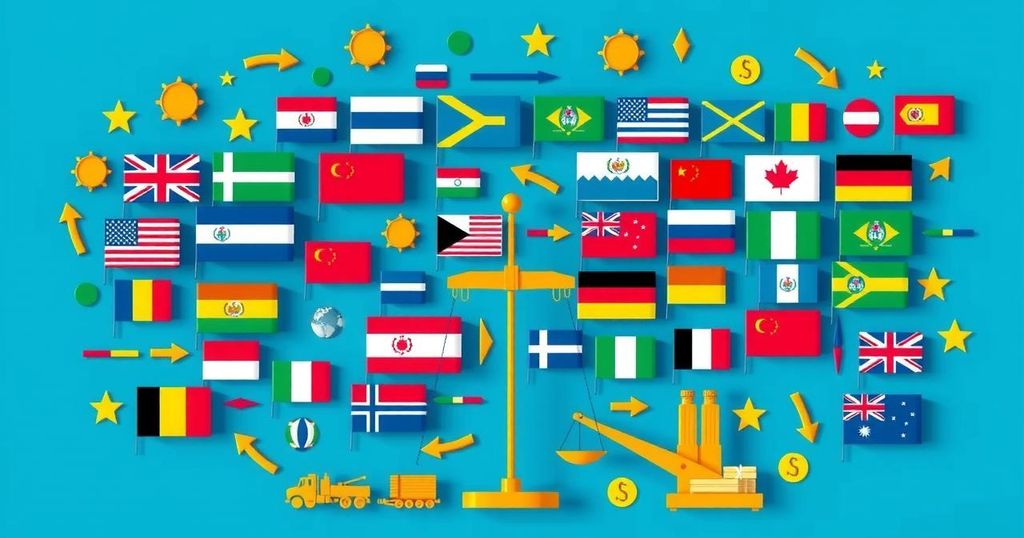President Trump’s recent tariffs on Canadian steel and aluminum have ignited a trade conflict, leading Canada to impose counter-tariffs and express public frustration. Observers note varying responses from other countries, with experts debating Canada’s long-term strategic options in light of these tensions and negotiations regarding the USMCA trade deal.
The recent implementation of tariffs by President Trump on Canadian steel and aluminum, at a rate of 25%, has culminated in significant retaliatory measures from Canada, which has enacted counter-tariffs on U.S. goods worth approximately C$30 billion. Among the affected parties, the European Union has also announced similar responses against the U.S., valued at approximately €26 billion. In contrast, nations such as Japan and South Korea have refrained from immediate retaliatory actions, observing the situation closely.
In conclusion, the ongoing trade tensions initiated by U.S. tariffs have prompted Canada to adopt a strategy of retaliatory tariffs amidst growing national frustration. As both countries navigate this trade conflict, experts suggest that Canada’s future approach could significantly influence outcomes, potentially redefining negotiations related to the USMCA trade deal. The situation remains dynamic with stakeholders from various nations closely observing and responding to the developments.
Original Source: m.economictimes.com






